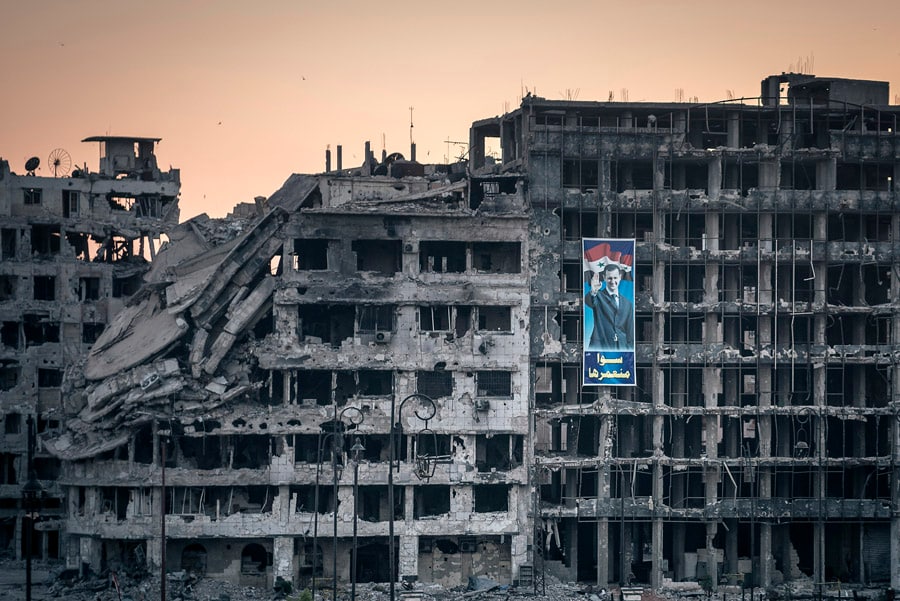
On Syria's ruins, a drug empire flourishes
The drug trade emerged in the ruins of a decade of war, which shattered Syria's economy, reduced most of its people to poverty and left members of Syria's military, political and business elite looking for new ways to earn hard currency and circumvent US economic sanctions
 A poster of President Bashar al-Assad hangs from the ruins of a shopping mall in Homs, Syria, June 15, 2014. Powerful associates of Syria’s president are making and selling captagon, an illegal amphetamine, creating a new narcostate on the Mediterranean. (Sergey Ponomarev/The New York Times)
A poster of President Bashar al-Assad hangs from the ruins of a shopping mall in Homs, Syria, June 15, 2014. Powerful associates of Syria’s president are making and selling captagon, an illegal amphetamine, creating a new narcostate on the Mediterranean. (Sergey Ponomarev/The New York Times)
BEIRUT — Built on the ashes of 10 years of war in Syria, an illegal drug industry run by powerful associates and relatives of President Bashar Assad has grown into a multibillion-dollar operation, eclipsing Syria’s legal exports and turning the country into the world’s newest narcostate.
Its flagship product is captagon, an illegal, addictive amphetamine popular in Saudi Arabia and other Arab states. Its operations stretch across Syria, including workshops that manufacture the pills, packing plants where they are concealed for export and smuggling networks to spirit them to markets abroad.
An investigation by The New York Times found that much of the production and distribution is overseen by the 4th Armored Division of the Syrian army, an elite unit commanded by Maher Assad, the president’s younger brother and one of Syria’s most powerful men.
Major players also include businessmen with close ties to the government, the Lebanese militant group Hezbollah and other members of the president’s extended family, whose last name ensures protection for illegal activities, according to the Times investigation, which is based on information from law enforcement officials in 10 countries and dozens of interviews with international and regional drug experts, Syrians with knowledge of the drug trade and current and former United States officials.
The drug trade emerged in the ruins of a decade of war, which shattered Syria’s economy, reduced most of its people to poverty and left members of Syria’s military, political and business elite looking for new ways to earn hard currency and circumvent U.S. economic sanctions.
©2019 New York Times News Service







